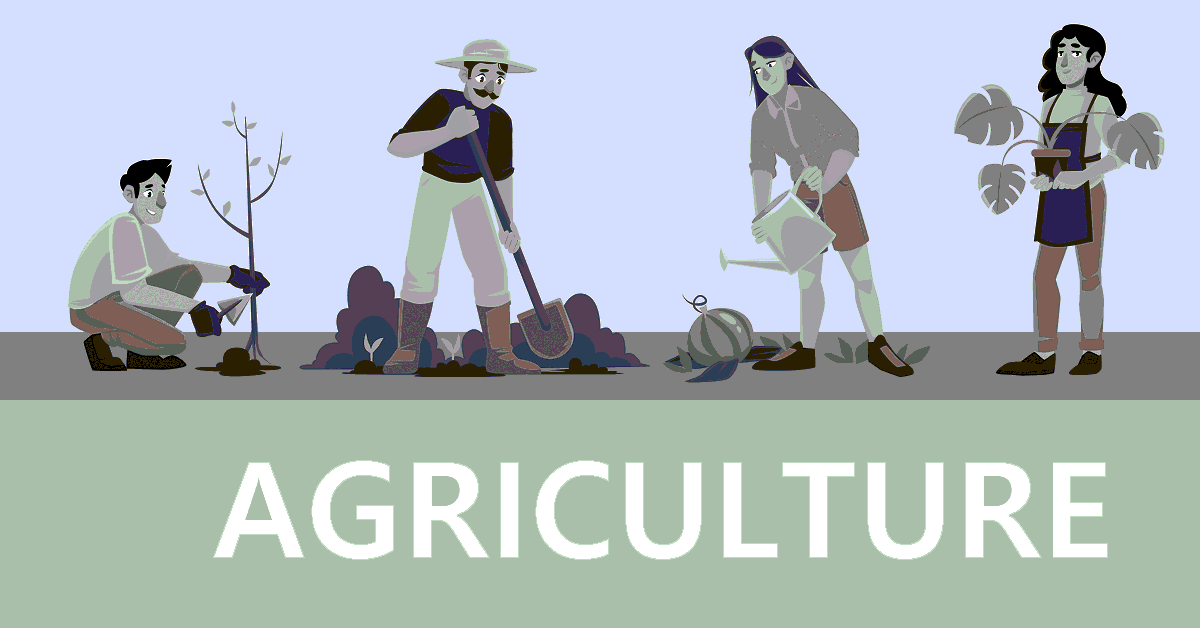
Climate change is one of the most pressing environmental issues of our time, with far-reaching impacts on the world's ecosystems, including agriculture and food production. The rise in global temperatures and shifts in precipitation patterns can lead to decreased crop yields, food shortages, and price increases, putting food security at risk.
Overview of Climate Change and its Effects on the Environment
Climate change refers to long-term shifts in global temperature patterns, weather patterns, and precipitation. These shifts are primarily driven by human activities such as burning fossil fuels, deforestation, and other land-use changes. The resulting increase in greenhouse gases in the atmosphere traps more heat and leads to a warming of the planet, leading to significant changes in the world's ecosystems.
Impacts of Climate Change on Agriculture and Food
The impacts of climate change on agriculture and food are complex and wide-ranging. Changes in temperature and precipitation patterns can result in reduced crop yields, changes in the timing and distribution of food production, and increased pest and disease outbreaks. This can ultimately lead to food shortages and price increases, putting food security at risk.
Consequences of Climate Change on Crop Production and Food Security
The decline in crop yields due to climate change is a major concern for food security. According to the United Nations, climate change is projected to cause a decline in crop yields of 10-25% by 2050. This decline in crop production can lead to food shortages and price increases, making food less accessible to vulnerable populations.
A study by the International Food Policy Research Institute found that the number of undernourished people in the world could increase by 10-83 million by 2050 due to climate change. In addition, changes in temperature and precipitation patterns can result in changes in the quality and nutritional content of crops, further affecting food security.
Role of Farmers, Governments, and Other Organizations in Adapting to the Impacts of Climate Change on Agriculture and Food
To mitigate the impacts of climate change on agriculture and food, farmers, governments, and other organizations are working to develop and implement adaptation strategies. This includes using drought-resistant seeds, incorporating irrigation systems, and improving soil and water management practices.
For example, in California's Central Valley, the increase in temperature has led to a decrease in the quality of crops such as almonds and wine grapes, with a potential loss of $1 billion in revenue. To adapt to this changing climate, farmers are using innovative methods such as using shading systems to protect crops from excessive heat.
In India, farmers have been using innovative methods such as using drought-resistant seeds and incorporating irrigation systems to adapt to the changing climate. These adaptations have helped to maintain food security and improve the livelihoods of farmers in the region.
Latest Research and Initiatives Aimed at Mitigating the Effects of Climate Change on Agriculture and Food
There is a growing body of research aimed at understanding the impacts of climate change on agriculture and food and developing solutions to mitigate these impacts. This includes research on the development of new crops that are more resilient to changes in temperature and precipitation patterns, and the use of precision agriculture techniques to improve crop production and efficiency.
Governments and other organizations are also investing in initiatives to improve food security in the face of a changing climate. This includes investing in renewable energy sources to reduce greenhouse gas emissions, improving infrastructure and transportation networks to reduce food waste, and supporting small-scale farmers in adapting to the impacts of climate change.
The impacts of climate change on agriculture and food are significant and far-reaching and pose a serious threat to food security and crop production. However, through the efforts of farmers, governments, and other organizations, we can work towards a more sustainable future for agriculture and food production.
One of the ways that farmers are adapting to the impacts of climate change is through the use of drought-resistant seeds and innovative irrigation systems. In India, for example, farmers have been using these methods to counteract the effects of increased temperatures and decreased rainfall, which can cause crops to wither and die. By using drought-resistant seeds and irrigation systems, farmers are able to ensure a consistent supply of food even in the face of a changing climate.
Governments and other organizations also play a critical role in mitigating the impacts of climate change on agriculture and food. This can involve implementing policies that encourage sustainable farming practices, investing in research and development of new technologies and solutions, and providing support and resources to farmers to help them adapt to the impacts of climate change.
One example of a government initiative aimed at mitigating the impacts of climate change on agriculture and food is the European Union's Common Agricultural Policy (CAP). The CAP provides funding for sustainable farming practices and helps farmers to adapt to the effects of climate change by providing support for measures such as drought-resistant crops and water management systems.
Another important initiative is the Climate-Smart Agriculture (CSA) program, which is a global effort to integrate food security and climate change into agricultural policies and practices. The CSA program aims to increase agricultural productivity, improve food security, and reduce greenhouse gas emissions from the agriculture sector. This program is supported by organizations such as the Food and Agriculture Organization of the United Nations (FAO), the World Bank, and the World Food Programme (WFP).
Conclusion
In conclusion, the impacts of climate change on agriculture and food are significant and far-reaching, and pose a serious threat to food security and crop production. However, by working together and taking action, we can help to mitigate these impacts and ensure a sustainable future for agriculture and food production. Whether you are a farmer, a policymaker, or simply someone who cares about the future of our planet, it is important to be informed and take steps to help address the challenges posed by climate change.
Agricultural Science

